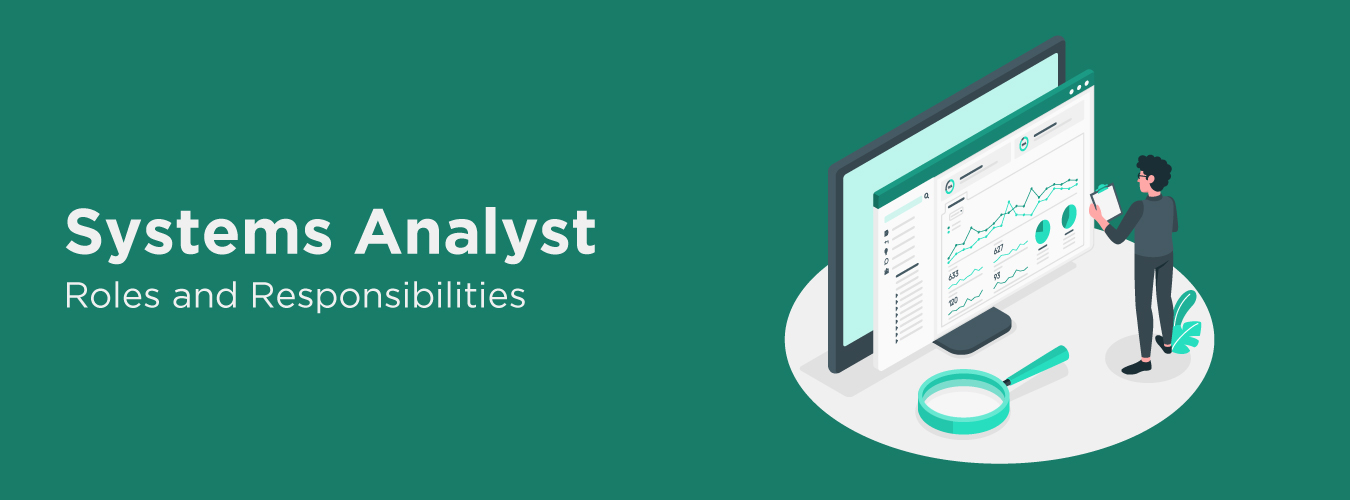In the field of Information Technology (IT), systems analysis is a crucial discipline that involves examining and deconstructing a system into its core components to ensure it meets its primary objective. A systems analyst plays a major role in this process by analyzing business challenges, designing technical solutions, and optimizing system performance. The key roles and responsibilities of a systems analyst include gathering and defining system requirements, assessing feasibility, designing solutions, coordinating with stakeholders, and ensuring seamless integration of technology within business operations.
By leveraging a structured, step-by-step approach, systems analysts bridge the gap between business needs and IT solutions to enhance efficiency and productivity. This article explores the critical aspects of systems analysis, the roles and responsibilities of a systems analyst, and their impact on modern IT environments.
What Does a Systems Analyst Do?
A systems analyst bridges business stakeholders and technical teams, ensuring that technology solutions align with organizational goals. Their primary role involves evaluating complex computer systems, processes, and user requirements to design, develop, and implement customized IT solutions. By analyzing existing systems, they identify inefficiencies and recommend improvements to enhance productivity.

With expertise in programming, database management, and system architecture, they create technology-driven strategies that streamline operations and maximize resource utilization. Through their problem-solving approach, systems analysts help businesses optimize workflows and achieve greater efficiency.
Roles & Responsibilities of a Systems Analyst
Their responsibilities extend beyond just designing systems. Below are the key responsibilities of a Systems Analyst, broken down into distinct categories.
1. Understanding & Defining User Requirements
One of the core responsibilities of a Systems Analyst is to gather and define user needs. This requires conducting in-depth interviews, closely observing users, and documenting their requirements. By analyzing the functioning of existing systems, the analyst can anticipate future user needs and design systems that effectively meet business objectives.
2. Prioritizing System Requirements
Organizations often have multiple users with varying needs, and resource constraints may limit how many requirements can be met. The Systems Analyst must evaluate these needs, prioritize them based on business objectives, and allocate resources efficiently. Strong analytical and decision-making skills are crucial for ensuring that the most critical requirements are addressed first.

3. Analyzing the Root Cause of Business Problems
To develop an effective solution, a Systems Analyst must first understand the fundamental causes of a business problem. This is done through data analysis, system observations, and technology-based tools that help filter unnecessary information. By identifying the root cause, the analyst ensures that the proposed solution actually resolves the issue rather than just addressing symptoms.
4. Managing Workflow Distribution
For a system to operate smoothly, workflow must be assigned appropriately to the right personnel. The Systems Analyst ensures that tasks such as programming, data management, and system administration are delegated to the relevant individuals. Additionally, they create comprehensive documentation that clearly outlines each team member’s responsibilities, ensuring seamless system management and coordination.
5. Continuous System Evaluation & Improvement
Beyond designing and implementing systems, a Systems Analyst is responsible for evaluating system performance on an ongoing basis. This includes conducting tests to determine whether the system meets its original objectives and identifying areas for improvement. Regular assessments help maintain efficiency, enhance functionality, and ensure that the system evolves with business needs.

6. Staying Updated with Technological Advancements
Technology is constantly evolving, and a Systems Analyst must stay up to date with modern advancements. By keeping pace with emerging trends, they can integrate new technologies, phase out outdated ones, and train users on modern systems. This ensures that the organization remains competitive and persists to operate efficiently.
Qualities of a Good Systems Analyst
To excel in this role, a Systems Analyst must possess a mixture of technical expertise, business acumen, and interpersonal skills. Below are some key soft skills that define an effective Systems Analyst.
1. Strong Communication Skills
A Systems Analyst interacts with users, managers, and technical teams. Therefore, they must be proficient in both verbal and written communication to translate technical concepts into clear, actionable understandings for stakeholders at all levels.
2. Problem-solving and Critical Thinking
Since the role involves diagnosing business issues and designing solutions, a Systems Analyst must have a strong analytical mindset. They should be capable of identifying problems, understanding their root causes, and developing effective solutions that align with organizational goals.
3. Business and Technical Expertise
A Systems Analyst must understand both the business and technological aspects of an organization. By combining knowledge of business processes with IT capabilities, they can develop solutions that enhance efficiency and drive growth.

4. Leadership and Strategic Thinking
While the role is technology-driven, a Systems Analyst must also function as a business leader. They are instrumental in driving system improvements and influencing decision-making. By thinking strategically and aligning their work with business objectives, they contribute significantly to organizational success.
Conclusion
A Systems Analyst is a key figure in an organization’s IT and business landscape, ensuring that technology effectively supports business operations. By understanding user needs, prioritizing requirements, solving complex problems, and staying ahead of technological trends, they play a crucial role in optimizing systems for efficiency and growth.
Frequently Asked Question
A systems analyst must be a good communicator, a problem solver, and a be a business and technical analyst.
C, COBOL, Software Design, Software Documentation, Software Testing, Software Maintenance, Software Development Process, Software Requirements, Teamwork, General Consulting Skills, Software Architecture.
The tools used by a systems analyst are grid charts, system flow charts, decision trees, simulations, and decision tables.
The estimated annual salary for a systems analyst in India is ₹8,82,000, with total estimated earnings reaching ₹9,32,000 per year. Additional pay, including bonuses and incentives, contributes around ₹50,000 annually.


